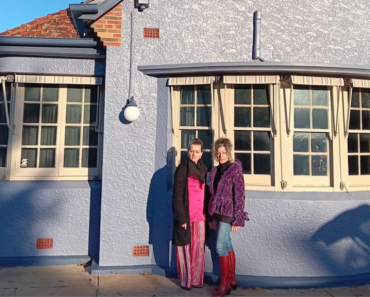Meybahar – Meybahar (Fonó, 2019)
Meybahar‘s self-titled debut album bridges Greek and Hungarian musical traditions through the interplay of the santuri (Greek hammered dulcimer) and violin. Founded by Greek santuri player Marilia Pilti and Hungarian violinist Kopcsik Márton, the band developed its distinctive sound over years of collaboration, drawing from Aegean, Asia Minor, and Hungarian folk influences.
The album features a mix of reinterpreted Greek folk songs with original compositions. Specifically, the group incorporates traditional melodies with Eastern modal elements, multi-layered vocals in Greek and Hungarian, and Middle Eastern percussion. Lyrically and thematically, the songs on the album explore resilience, transformation, and personal growth.

“A milestone for us, this album encapsulates years of work and artistic evolution,” says Kopcsik Márton. Meanwhile, Pilti likens their creative process to cooking, stating, “Discovering other musical traditions is like adding spices to a dish. But ultimately, you must find your own recipe.”
“Adama me to teri sou” is a collaboration with Greek artists Martha Mavroidi and Giorgos Ventouris, weaving together santuri, lafta, and vocals inspired by traditional Greek wedding songs.
“Afousis” is a mesmerizing reimagining of a folk ballad from Kassos, released as a single and music video.
“Apano stin triantafilia” (On the rose bush) is a lively folk song with emotive vocal harmonies.
“Na ta taxidepso” (I want to sail them away) is an irresistible maritime traditional song from Chios. The verses repeats the word eri: I want to sail away, “eri” again/I want to sail away, “eri” again/into the waters of Attaleia, “eri” again/ into the waters of Attaleia. Eri means “to pull” and was probably a naval command for rowing.
“Adama me to teri sou” (Beside Your Beloved) is an exquisitely crafted original song with highly persuasive vocals, santuri and flute work.
“Skia” (Shadow) is an original by Pilti, highlighting the interplay of santuri, fiddle and engrossing frame drums.
“Kita me glikia mou agapi” (Look at me, my sweet love) is a traditional song with layered vocals and notable santuri delivery.
“Horos ton anemon” (Dance of the winds) is an exquisite original that highlights the fiddle, bringing together Hungarian and Greek influences.
“Ne nézz a szemembe” (Don’t look into my eyes) is a high-energy track with Cappadocian and Hungarian influences.
Lastly, “Se vrika” (I found you) is a contemplative closing track, fading into the sounds of the sea.
Musicians: Marilia Pilti on santuri, vocals; Kopcsik Márton on violin, viola with sympathetic strings, guitars; Radis Afrodité on vocals; Bordás Zoltán on percussion; Gerzson János on oud.
Guest Artists: Martha Mavroidi on vocals, lafta; Giorgos Ventouris on double bass, guitar; Nikos Paraoulakis on ney.
Buy Meybahar.
Author: Tyler Bennet








